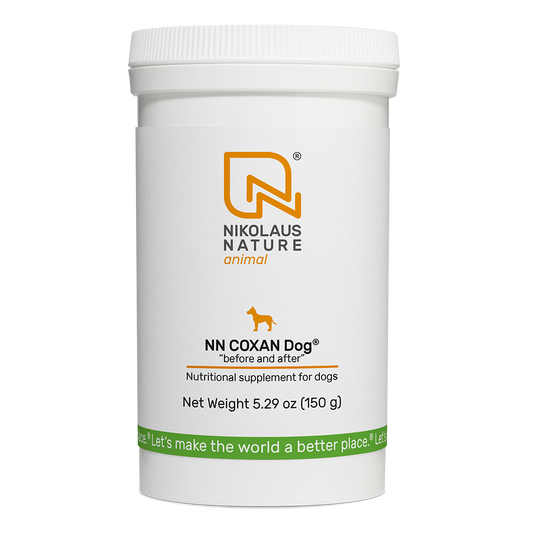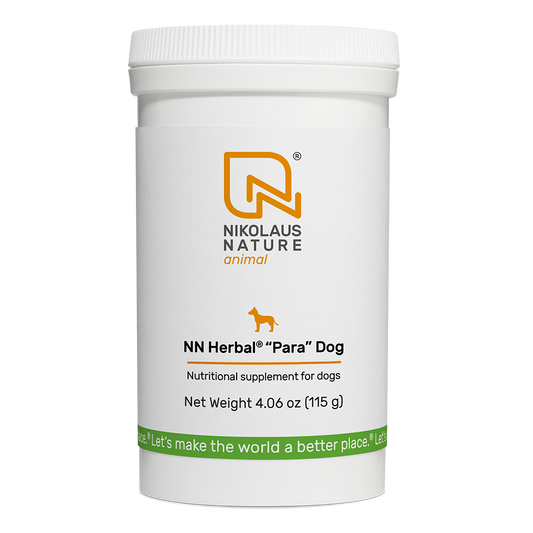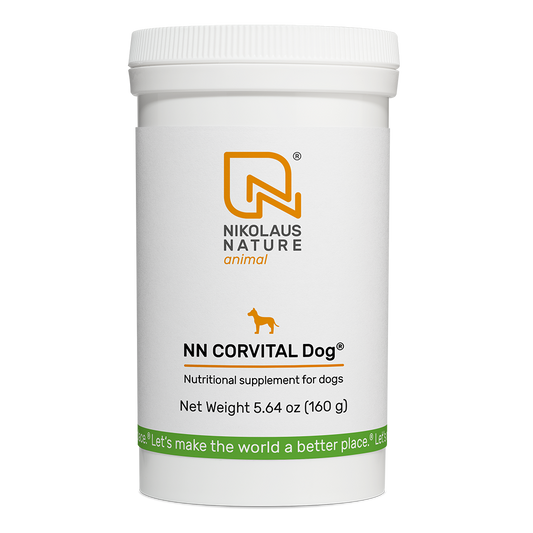Congestive Heart Failure in Dogs: A Complete Guide
Have you noticed your dog coughing and then researched what it could mean? Did your veterinarian detect a heart murmur for the first time on a routine geriatric exam? Congestive heart failure can be very scary, but the good news is that if caught early enough, it can typically be medically managed. Knowing what to look for and how to intervene is essential to being comfortable with your dog’s diagnosis of congestive heart failure and being an advocate for your pet’s health.

What is Congestive Heart Failure in Dogs?
Congestive heart failure occurs in our canine companions when their heart is not able to pump blood efficiently. When blood is not flowing in the appropriate direction, it backs up at the heart, causing fluid congestion in the lungs and sometimes the abdomen depending on which side of the heart is diseased.
- Left-Sided Congestive Heart Failure : Left-sided heart failure is the more common of the two. The left side of the heart is responsible for pumping blood from the lungs to the rest of the body to provide oxygen to tissues. When not working efficiently, fluid backs up into the lungs. This leads to diminished lung capacity and often causes a wet cough and labored breathing if not managed.
- Right-Sided Congestive Heart Failure : The right side of the heart is responsible for pumping deoxygenated blood returning from the rest of the body into the lungs to be reoxygenated. When not working efficiently, fluid can back up from the vena cava into the liver and cause fluid buildup in the abdominal cavity, known as ascites.
Signs & Symptoms of a Dog Dying of Heart Failure
There are many signs and symptoms of heart failure in dogs. While there is some overlap, some of the symptoms are related to the specific types or manifestations of heart disease. Many of the listed symptoms can also be signs of other diseases, speaking to the importance of a timely veterinary visit to aid in proper diagnosis and appropriate treatment for your pet.
Here is a list of symptoms that could indicate heart failure in dogs:
- Exercise intolerance and fatigue : If your dog isn’t moving oxygen well, they will likely experience diminished energy and will have trouble performing activities that require more tissue oxygenation, like exercise.
- Coughing : When thinking about a cough related to heart disease there are two potential causes. Congestion in the lungs often causes a wet cough while pets in the earlier stages of heart disease tend to have more of a dry cough. This dry cough is often due to the enlarged heart placing pressure on the trachea.
- Increased breathing rate and abnormal panting : Congestive heart failure diminishes your dog’s heart and lung’s ability to supply oxygen appropriately, leading to a more labored breathing and an increased breathing rate as the body attempts to compensate.
- Loss of appetite : Dogs with congestive heart failure may not have a great appetite as their primary focus is on getting enough oxygen. A dog with right-sided heart failure and secondary ascites may not want to eat due to discomfort associated with abdominal distension and pressure placed on the stomach.
- Blue-tinged gums : When a pet is well oxygenated, their gums are a normal pink color. When their blood oxygen falls below a certain level, known as cyanosis, their gums turn a purple to blue color.
- Coughing up foam : Dogs with congestive heart failure will cough up fluid from their lungs.
- Distended abdomen : Abdominal fluid buildup is a symptom of right-sided heart failure and can cause an uncomfortable distended and tight abdomen.
- Fainting or collapsing : If the brain is not getting enough oxygen, sometimes congestive heart failure dog patients will pass out, especially after exercise or excitement.
What Causes Congestive Heart Failure in Dogs?
While any issue that can cause the heart not to pump efficiently can lead to a congestive heart failure, the most common causes are degenerative valve disease and dilated cardiomyopathy.
Degenerative valve disease (DVD) occurs commonly in older, small breed dogs, for example Chihuahuas, Dachshunds and Cavalier King Charles spaniels. As effected dogs age, the leaflets that make up the valves between their atria and ventricles degenerate. In a healthy heart, these valves should complete close during each pump of the heart. In a patient with DVD, the effected valves do not completely close causing back flow of blood. This backflow causes strain on the heart eventually leading to heart remodeling and congestion of the thoracic and/or abdominal cavities.
Dilated cardiomyopathy (DCM) happens when the heart muscle becomes thin, causing the heart chambers to dilate and the heart to not pump blood as efficiently. This type of heart disease is more common in large breed dogs, like Dobermans, Boxers, and Great Danes.
How to Diagnose Congestive Heart Failure in Dogs
There are multiple modalities than can be used to aid in the diagnosis of heart disease, but the gold standard is an echocardiogram as this gives the most accurate and complete picture of what is going on inside the heart. Most veterinarians will use a combination of the below modalities to make a diagnosis of congestive heart failure and determine the severity of disease:
-
Auscultation : When your pet goes in for an exam, the veterinarian will use a stethoscope to listen to their heart and lungs. Patients with heart disease may have a heart murmur- heard as a wooshing sound rather than the distinct lub-dub we think of as normal. A more severe murmur often correlates with more severe heart disease.
Your vet may also pick up on an abnormal heart rhythm, which is an indicator of heart disease that always warrants further inspection. With lung congestion, sometimes there can be audible crackles or wheezes which should prompt a chest X-ray.
- Blood Tests : Blood tests are not the diagnostic of choice when it comes to heart disease in dogs. There are blood tests called Pro-BNP and Cardiac Troponin I which test for chemicals produced when the heart is under strain. While this can be a useful screening test for occult heart disease, by the time most patients are symptomatic or have a murmur or arrythmia found on physical exam a vet would already know there is an issue with the heart so more specific diagnostics would be warranted.
-
X-rays : X-rays, also known as radiographs, are necessary to diagnose congestive heart failure. Radiographs can look at the lung fields to determine if there is fluid in the lungs. Any pet patient who is experiencing increased coughing, especially those known to have heart disease, should have a chest X-ray.
A radiograph can evaluate the size and shape of the heart but cannot look at the internal structures which is the reason why an echocardiogram is recommended for all patients with heart disease.
- Echocardiogram : An echocardiogram (echo) is considered the gold standard for diagnosis of heart disease. An echo uses an ultrasound to allow for real-time evaluation of the heart. One can measure the size and shape of each heart chamber and even use color Doppler to measure severity of back flow through poorly functioning valves. This is the best modality for determining true diagnosis of heart disease including severity and determining best treatment options. An echo should be read by a trained cardiologist.
- Electrocardiogram (ECG) : An electrocardiogram measures the electrical output of the heart. While it is arguable that all patients with heart disease should have an ECG, it is especially important for diagnosing arrythmias. Arrythmias are more common with DCM than DVD, but can occur with either.
What are the Stages of Congestive Heart Failure?
The stage of heart failure a dog is in is determined by the severity of disease which also impacts the necessary management. Heart failure is a progressive disease that requires regular monitoring. As heart disease progresses, patients will move into different stages of heart failure warranting increased management strategies.
Below are the stages of heart disease in dogs:
- Stage A : Dogs who are at high risk for developing heart disease but currently do not have any symptoms or structural changes, namely those who are known to come from parents with heart disease or Cavalier King Charles spaniels. These patients should have regular heart auscultation and imaging to monitor for onset of disease.
- Stage B1 : Dogs who have mild structural changes to their heart associated with heart disease and may have a murmur but have not yet experienced symptoms associated with heart failure. Treatment is not yet clinically warranted.
- Stage B2 : Dogs who have not yet experienced symptoms associated with heart failure but who have more advanced structural changes. These patients have more severe valve regurgitation and treatment is warranted to control symptoms of heart disease and to delay onset of heart failure.
- Stage C : Dogs who are experiencing or have experienced heart failure. These patients require management with a diuretic.
- Stage D : Dogs who are experiencing heart failure that is refractory to standard diuretic therapy. These patients often require surgery or specialized treatment that may or may not be successful.
Treatment for Congestive Heart Failure in Dogs
Treatment of heart disease in dogs varies greatly depending on the stage of heart disease and the symptoms present. Pets in earlier stages may be on only one of the below medications, while pets in later stages may be on all the below medications:
- Inodilators : Pimobendan is labeled for management of heart disease related to both DCM and DVD. As an inodilator, pimobendan acts to increase the contractility of the heart without increasing the heart muscle’s oxygen demand.
- ACE inhibitors : ACE inhibitors, such as enalapril and benazepril work to lower systemic blood pressure so that the heart doesn’t have to work as hard to pump blood in the forward direction.
- Diuretics : Diuretics are essential to congestive heart failure as they cause increased excretion of fluid volume, resulting in less work for the heart. Furosemide is a common diuretic used to help pull fluid from the lungs or abdominal cavity.
- Anti-arrhythmic drugs : Sometimes when the heart remodels secondary to disease, its electrical output is compromised, resulting in an arrythmia. If the heartbeat is too irregular, this can lead to syncope or even sudden death. Anti-arrhythmic drugs such as mexiletine, propranolol, diltiazem or others are used to promote a more regular heart rhythm but must be prescribed very specifically based on the individual patient’s type of murmur.
- Holistic Options : Holistic supplements, such as NN CORVITAL - Dog Heart Supplement can be used in adjunct with medication to promote and maintain heart health.
Can Congestive Heart Failure Be Reversed in Dogs?
Depending on the type of heart disease, sometimes changes can be reversed. Once congestion has developed, it is likely too late to reverse disease, but it can be managed with medication and the secondary congestion can be reversed. Some versions of heart disease like diet-related DCM can be reversed when an appropriate diet is introduced if caught early enough.

Frequently Asked Questions
Nikolaus Nature is here to answer frequently asked questions about canine heart disease to help you as an owner better understand congestive heart failure.
Is congestive heart failure in dogs a painful death?
While congestive heart failure may not be specifically described as painful, there is no doubt it is uncomfortable and scary. Imagine feeling like you can’t breathe; it would be extremely scary.
How long do dogs live with heart failure?
While pets can live several years with heart disease, once a dog develops congestion in their lungs, the average dog lives anywhere from another 6 months to 1.5 years.
How long can a dog live with congestive heart failure without medication?
Once a pet develops chest congestion, they require a diuretic to pull the fluid off their lungs. Without medical management, a dog could succumb to heart disease in days to months depending on the severity of congestion.
What to feed your dog in congestive heart failure?
A diet low in sodium is ideal for patients with heart disease to lower fluid retention. There are many diets formulated to promote heart health that in addition to being low sodium, may contain ingredients like taurine or L-carnitine. Owners can also consider supplements like NN CORVITAL - Dog Heart Supplement for these heart health promoting ingredients.
Do dogs have heart attacks?
Yes, dogs can have heart attacks, and those with heart disease are at increased risk. It is important to keep a close eye on your fur baby and if at any point they are acting abnormally, consult with your veterinarian.
Heartworm prevention dog dogs: Vet approved advice
Heartworm preventatives are essential to prevent heartworm disease in our canine companions. Parasite prevention should be administered year-round and lifelong to all dogs, including those with heart disease. This can come in the form of topical, oral or injectable products.
Resources
-
Stages of heart disease
(https://www.ncbi.nlm.nih.gov/pmc/articles/PMC6524084/) -
Heart failure diagnosis and management
(https://www.ncbi.nlm.nih.gov/pmc/articles/PMC8773235/) -
Diagnosing heart disease
(https://pubmed.ncbi.nlm.nih.gov/30974015/) -
Benefits of supplements and diet to heart disease management
(https://pubmed.ncbi.nlm.nih.gov/12025462/) (https://pubmed.ncbi.nlm.nih.gov/11591172/) -
Pimobendan for DVD and DCM
(https://pubmed.ncbi.nlm.nih.gov/20610012/) -
DCM in dogs
(https://pubmed.ncbi.nlm.nih.gov/33345431/) -
Arrhythmia in DCM dogs
(https://pubmed.ncbi.nlm.nih.gov/37228845/)







